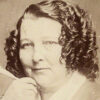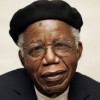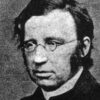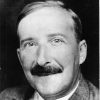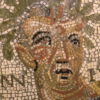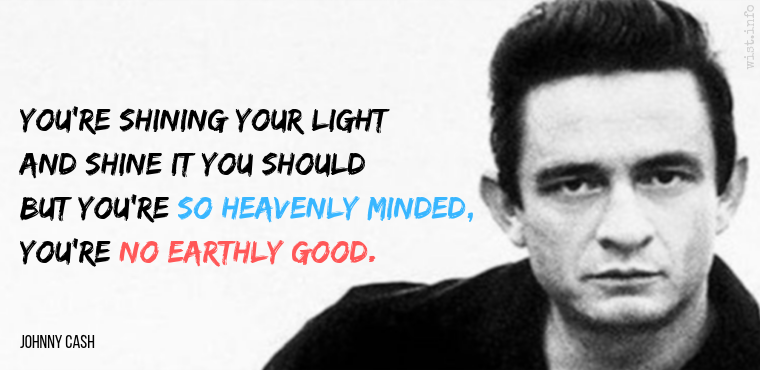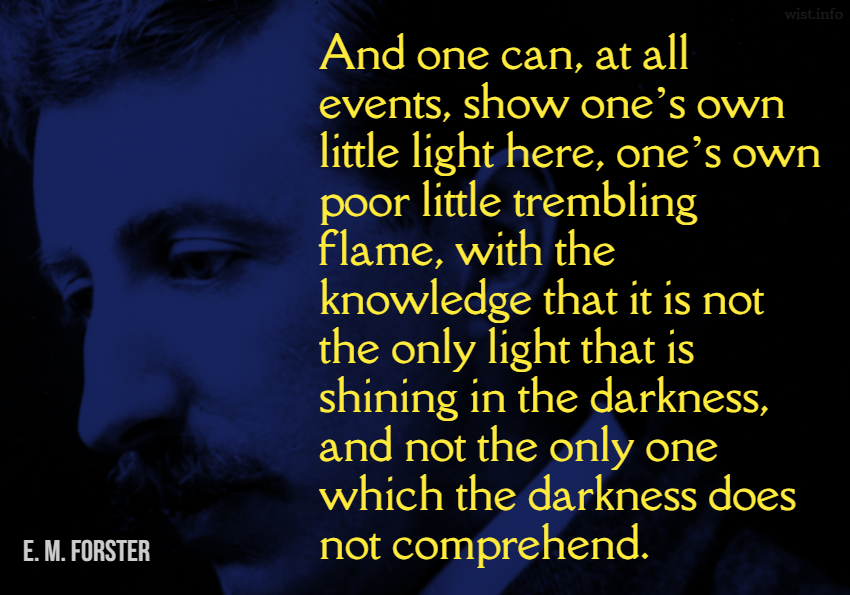Incline us oh God! to think humbly of ourselves, to be severe only in the examination of our own conduct, to consider our fellow-creatures with kindness, and to judge of all they say and do with that charity which we would desire from them ourselves.
Jane Austen (1775-1817) English author
Prayer 3 “Another Day Now Gone”
(Source)
On e of three surviving prayers Austen wrote. More discussion: Exploring Jane Austen’s Prayers | Jane Austen's World.
Quotations about:
charity
Note not all quotations have been tagged, so Search may find additional quotes on this topic.
Now Scripture enjoins nothing except charity, and condemns nothing except lust, and in that way fashions the lives of men.
[Non autem praecipit Scriptura nisi caritatem, nec culpat nisi cupiditatem, et eo modo informat mores hominum.]
Augustine of Hippo (354-430) Christian church father, philosopher, saint [b. Aurelius Augustinus]
On Christian Doctrine [De Doctrina Christiana], Book 3, ch. 10 / § 15 (3.10.15) (AD 397) [tr. Shaw (1858)]
(Source)
On how people treat Scripture as literal when it agrees with their and their culture's judgment, and figurative when not.
(Source (Latin)). Alternate translations:
But Scripture teaches nothing but charity, nor condemns anything except cupidity, and in this way shapes the minds of men.
[tr. Robertson (1958)]
Scripture enjoins nothing but love, and centures nothing but lust, and moulds men's minds accordingly.
[tr. Green (1995)]
Iz it charity tew giv tew a thankless cuss in need? certainly; jest az mutch az it would be to save a drouning cow.
[Is it charity to give to a thankless cuss in need? Certainly; just as much as it would be to save a drowning cow.]
Josh Billings (1818-1885) American humorist, aphorist [pseud. of Henry Wheeler Shaw]
Everybody’s Friend, Or; Josh Billing’s Encyclopedia and Proverbial Philosophy of Wit and Humor, ch. 132 “Affurisms: Chips” (1874)
(Source)
The moral thing I wish to say to [future generations] is very simple. I should say love is wise, hatred is foolish. In this world which is getting more and more closely interconnected, we have to learn to tolerate each other. We have to learn to put up with the fact that some people say things that we don’t like. We can only live together in that way, and if we are to live together and not die together we must learn the kind of charity and kind of tolerance which is absolutely vital to the continuation of human life on this planet.
Bertrand Russell (1872-1970) English mathematician and philosopher
Interview by John Freeman, Face to Face, BBC TV (1959-03-04)
(Source)
Give all thou canst; high Heaven rejects the lore
Of nicely calculated less or more.William Wordsworth (1770-1850) English poet
“Inside of King’s College Chapel, Cambridge,” Ecclesiastical Sonnets, Part 3, # 43, ll. 6-7 (1822)
(Source)
For all you can hold in your cold dead hand
Is what you have given away.Joaquin Miller (1837-1913) American poet [pen name of Cincinnatus Heine (or Hiner) Miller]
“Peter Cooper (Died 1883),” ll. 11-12, In Classic Shades and Other Poems (1890)
(Source)
This phrasing of the sentiment seems to have been made by Miller, but the sentiment itself predates him in various ways. See, for example, Martial, Epigram 5.42 (AD 90): "You keep thus always what you gave."
Edward Gibbon, in his Decline and Fall of the Roman Empire,, ch. 61 (1776), notes the epitaph of 15th Century Earl Edward Courtenay of Devonshire:
What we gave, we have;
What we spent, we had;
What we left, we lost.
Miller was himself quoted by Edwin M. Poteat, President of Furman University, in his poem "What You Have Given Away" (1909). Poteat put the phrase in quotation marks, but is sometimes still given full credit.
Elbert Hubbard may have been borrowing from Miller in his Little Journeys to the Homes of the Great, Vol. 12 "Great Scientists," "Haeckel" (collected in 1916, but published earlier), where he writes:
We keep things by giving them to others. The dead carry in their clenched hands only that which they have given away; and the living carry only the love in their hearts which they have bestowed on others.
Finally, often in the variant form "All we can hold in our cold dead hands is what we have given away," the phrase is today often identified as a Sanskrit proverb. The universality of thought means it may well have an ancient Indian inspiration, but the language may indicate a tie to Miller's poem, as promulgated. The "Sanscrit proverb" appears as such in Hoyt's New Cyclopedia of Practical Quotations (1922), but not in the 1896 edition. This may be taken from a letter to the editor, New York Times (1908-07-25) by Emily Noble, identifying this as the translation of a Sanskrit proverb.
The Holy Supper is kept, indeed,
In whatso we share with another’s need;
Not what we give, but what we share, —
For the gift without the giver is bare;
Who gives himself with his alms feeds three, —
Himself, his hungering neighbor, and me.James Russell Lowell (1819-1891) American diplomat, essayist, poet
“The Vision of Sir Launfal,” Part 2, st. 8 (1848)
(Source)
Christ / the Holy Grail speaking to Sir Launfal. See Matthew 25:31-46.
Give, give, give — what is the point of having experience, knowledge, or talent if I don’t give it away? Of having stories if I don’t tell them to others? Of having wealth if I don’t share it? I don’t intend to be cremated with any of it! It is in giving that I connect with others, with the world, and with the divine.
Isabel Allende (b. 1942) Chilean-American writer
“In Giving I Connect with Others,” This I Believe series, All Things Considered, NPR (2005-04-04)
(Source)
Written as a tribute to her daughter, Paula, who died in December 1992.
The rule is, we are to Give as we would Receive, cheerfully, quickly, and without Hesitation; for there’s no Grace in a Benefit that sticks to the fingers.
Seneca the Younger (c. 4 BC-AD 65) Roman statesman, philosopher, playwright [Lucius Annaeus Seneca]
Morals, Part 1 “Of Benefits,” ch. 7 “The Manner of Obliging” [tr. L’Estrange (1693)]
(Source)
On the necessary points, unity. On the questionable points, liberty. In everything, love.
Augustine of Hippo (354-430) Christian church father, philosopher, saint [b. Aurelius Augustinus]
(Misattributed)
A commentary on theological / doctrinal dispute, frequently attributed to Augustine, but not found in his works.
The first known occurrence of such an expression is in Marco Antonio de Dominis, De Republica Ecclesiastica, Book 4, ch. 8, penultimate sentence (1617):
Omnesque mutuam amplecteremur unitatem in necessariis, in non necessariis libertatem, in omnibus caritatem.
[And let us all embrace one another, unity in what is necessary, liberty in what is not necessary, charity in all things.]
The phrase was also adapted by Richard Baxter (1615-1691) as his motto. See also Rupertus Meldenius (1626).
More discussion about this quotation here: Liber locorum communium: In necessariis unitas, in non necessariis libertas, in utrisque caritas (Marco Antonio De Dominis, 1617), cf. In necessariis unitas, in dubiis libertas, in omnibus caritas (and other variants). English: "In essentials unity ..."
It is well to give when asked, but it is better to give unasked, through understanding.
Kahlil Gibran (1883-1931) Lebanese-American poet, writer, painter [Gibran Khalil Gibran]
The Prophet, “Giving” (1923)
(Source)
The cure for all the ills and wrongs, the cares, the sorrows, and crimes of humanity, all lie in that one word LOVE. It is the divine vitality that produces and restores life. To each and every one of us it gives the power of working miracles, if we will.
Lydia Maria Child (1802-1880) American abolitionist, activist, journalist, suffragist
Letters from New-York, # 28, 1842-09-29 (1843)
(Source)
But if nature does not ratify law, then all the virtues may lose their sway. For what becomes of generosity, patriotism, or friendship? Where will the desire of benefitting our neighbours, or the gratitude that acknowledges kindness, be able to exist at all? For all these virtues proceed from our natural inclination to love mankind.
[Atqui si natura confirmatura ius non erit, uirtutes omnes tollantur. Vbi enim liberalitas, ubi patriae caritas, ubi pietas, ubi aut bene merendi de altero aut referendae gratiae uoluntas poterit existere? Nam haec nascuntur ex eo quod natura propensi sumus ad diligendos homines, quod fundamentum iuris est.]
Marcus Tullius Cicero (106-43 BC) Roman orator, statesman, philosopher
De Legibus [On the Laws], Book 1, ch. 15 / sec. 43 (1.15/1.43) [Marcus] (c. 51 BC) [tr. Barham/Yonge (1878)]
(Source)
(Source (Latin)). Alternate translations:
If nature does not ratify law, all the virtues lose their sway. What becomes of generosity, patriotism, or friendship? Where should we find the desire of benefitting our neighbours, or the gratitude that acknowledges kindness? For all these virtues proceed from our natural inclination to love and cherish our associates.
[tr. Barham (1842)]
And if Nature is not to be considered the foundation of Justice, that will mean the destruction [of the virtues on which human society depends]. For where then will there be a place for generosity, or love of country, or loyalty, or the inclination to be of service to others, or to show gratitude for favours received? For these virtues originate in our natural inclination to love our fellow-men, and this is the foundation of Justice.
[tr. Keyes (1928)]
That is why every virtue is abolished if nature is not going to support justice. What room will there be for liberality, patriotism, and devotion; or for the wish to serve others or to show gratitude? These virtues are rooted in the fact that we are inclined by nature to have a regard for others; and that is the basis of justice.
[tr. Rudd (1998)]
If nature will not confirm justice, all the virtues will be eliminated. Where will there be a place for liberality, for love of country, for piety, for the desire to do well by others or return kindness? These all arise because we are inclined by nature to love other humans, and that is the foundation of justice.
[tr. Zetzel (1999)]
And if right has not been confirmed by nature, they may be eliminated. In fact, where will liberality be able to exist, where affection for the fatherland, where piety, where the will either to deserve well of another or to or to return a service? These things originate in this, that we are inclined by nature to to cherish human beings; that is the foundation of right.
[tr. Fott (2013)]
Altruism is a hard master; but so is opportunism.
Mignon McLaughlin (1913-1983) American journalist and author
The Neurotic’s Notebook, ch. 5 (1963)
(Source)
‘Tis unbecoming not to shed a tear
Over the wretched; he too is devoid
Of virtue, who abounds in wealth, yet scruples
Thro’ sordid avarice to relieve their wants.Euripides (485?-406? BC) Greek tragic dramatist
Antiope [Αντιοπη], frag. (c. 410 BC) [tr. Wodhall (1809)]
(Source)
Barnes frag. 62, Musgrave frag. 40.
We have no right to prejudice another in his civil enjoiments because he is of another church. If any man err from the right way, it is his own misfortune, no injury to thee; nor therefore art thou to punish him in the things of this life because thou supposeth he will be miserable in that which is to come — on the contrary accdg to the spirit of the gospel, charity, bounty, liberality is due to him.
Thomas Jefferson (1743-1826) American political philosopher, polymath, statesman, US President (1801-09)
Notes on Religion (Oct 1776?)
(Source)
Labeled by Jefferson "Scraps Early in the Revolution."
It’s like this: if you have one piece of cake, and you eat it, that’s fine. If you have two pieces of cake, you should probably share some with a friend. But maybe not. Occasionally we could all use two pieces of cake. But if you have a whole cake, and you eat all of it, that’s not very cool. It’s not just selfish, it’s kinda sick and unhealthy.
Patrick Rothfuss (b. 1973) American author
“Concerning Cake, Bilbo Baggins and Charity,” Blog Entry (19 Jan 2014)
(Source)
To have and not give is in some cases worse than stealing.
[Haben und nichts geben, ist in manchen Fällen schlechter als stehlen.]
Marie von Ebner-Eschenbach (1830-1916) Austrian writer
Aphorisms [Aphorismen], No. 41 (1880-1893) [tr. Wister (1882)]
(Source)
(Source (German)). Alternate translation:
To have and not give is in some instances worse than stealing.
[tr. Scrase/Mieder (1994)]
We are obligated to be more scrupulous in fulfilling the commandment of charity than any other positive commandment because charity is the sign of a righteous man, the seed of Abraham our Father.
Maimonides (1135-1204) Spanish Jewish philosopher, scholar, astronomer, physician [Moses ben Maimon, Rambam, רמב״ם]
Mishneh Torah [Repetition of the Torah] / Sefer Yad ha-Hazaka [The Strong Hand], Book 7 “Seeds [Sefer Zeraim],” ch. 10, #1 (1180)
(Source)
As quoted in Isadore Twersky, ed., A Maimonides Reader (1972), and the most common English translation. Alternate translation:
We must be especially careful to observe the mitzvah of tzedakah, more so than any other positive mitzvah, for tzedakah is a sign of the righteous [tzadik] lineage of Abraham, our father.
[tr. Meszler (2003)]
More discussion of the connotations of the Hebrew tzedakah that are not covered by the English charity here: Tzedakah - charity in the Jewish tradition - BJE
Technological advance is rapid. But without progress in charity, technological advance is useless. Indeed, it is worse than useless. Technological progress has merely provided us with more efficient means for going backwards.
Aldous Huxley (1894-1963) English novelist, essayist and critic
Ends and Means: An Inquiry Into the Nature of Ideals, ch. 1 (1937)
(Source)
Humility makes us charitable toward our neighbor. Nothing will make us so generous and merciful to the faults of others as seeing our own faults.
François Fénelon (1651-1715) French theologian, poet, writer [François de Salignac de la Mothe-Fénelon]
Letter, Undated [tr. Edmonson / Helms]
(Source)
In Robert J. Edmonson, Hal M. Helms (eds.), The Complete Fénelon, Part 2, ch. 8 (2008). Alternate translations:
Nothing will make us so charitable and tender to the faults of others as by self-examination thoroughly to know our own.
[Source (1895)]
Humility renders us charitable towards our neighbor; nothing will make us so tender and indulgent to the faults of others as a view of our own.
[tr. Metcalf (1853)]
“Faith, hope, and charity, these three; but the greatest of these is charity.”
There is a deeper meaning in this text than we at first see. Of “these three,” two concern ourselves; the third concerns others. When faith and hope fail, as they do sometimes, we must try charity, which is love in action. We must speculate no more on our duty, but simply do it. When we have done it, however blindly, perhaps Heaven will show us the reason why.
Dinah Craik (1826-1887) English novelist and poet [b. Dinah Maria Mulock]
Christian’s Mistake, ch. 2 (1865)
(Source)
A reference to the Bible, 1 Cor. 13:13, the "Three Theological Virtues."
You have to be very careful when you give to others that you don’t tell them how great you are rather than how much you value them.
Merle Shain (1935-1989) Canadian journalist and author
When Lovers Are Friends, ch. 9 (1980)
(Source)
That charity which longs to publish itself ceases to be charity.
Eliza Cook (1818-1889) English author and poet
“Diamond Dust,” Eliza Cook’s Journal, # 90 (18 Jan 1851)
(Source)
Did universal charity prevail, earth would be a heaven, and hell a fable.
Charles Caleb "C. C." Colton (1780-1832) English cleric, writer, aphorist
Lacon, Vol. 1, # 160 (1820)
(Source)
Indeed, the highest exercise of charity is, charity towards the uncharitable.
Joseph S. Buckminster (1784-1812) American Unitarian preacher and Bible scholar
Sermon on 2 Peter 1:5-7
(Source)
Sermon 24 in Sermons by the Late Rev. J. S. Buckminster (1814). Scriptural reference.
“Some people say we shouldn’t give alms to the poor, Shirley.”
“They are great fools for their pains. For those who are not hungry, it is easy to palaver about the degradation of charity, and so on; but they forget the brevity of life, as well as its bitterness. We have none of us long to live: let us help each other through seasons of want and woe, as well as we can, without heeding in the least the scruples of vain philosophy.”
Charlotte Brontë (1816-1855) British novelist [pseud. Currer Bell]
Shirley, ch. 14 [Lina and Shirley] (1849)
(Source)
We should be sure, when we rebuke a want of charity, to do it with charity.
Christian Nestell Bovee (1820-1904) American epigrammatist, writer, publisher
Intuitions and Summaries of Thought, Vol. 1, “Charity” (1862)
(Source)
The desire of power in excess caused the angels to fall; the desire of knowledge in excess caused man to fall; but in charity there is no excess, neither can angel or man come in danger by it.
Francis Bacon (1561-1626) English philosopher, scientist, author, statesman
“Of Goodness and Goodness of Nature,” Essays, No. 13 (1625)
(Source)
Often trimmed down to "In charity there is no excess."
While we do our good works let us not forget that the real solution lies in a world in which charity will have become unnecessary.
Chinua Achebe (1930-2013) Nigerian novelist, poet, professor, critic [Albert Chinualumogu Achebe]
Anthills of the Savannah (1987)
(Source)
So come, young soldiers, welcome to our house.
My destiny, harrying me with trials hard as yours,
led me as well, at last, to anchor in this land.
Schooled in suffering, now I learn to comfort
those who suffer too.[Quare agite, O tectis, iuvenes, succedite nostris.
Me quoque per multos similis fortuna labores
iactatam hac demum voluit consistere terra.
Non ignara mali, miseris succurrere disco]Virgil (70-19 BC) Roman poet [b. Publius Vergilius Maro; also Vergil]
The Aeneid [Ænē̆is], Book 1, l. 627ff (1.627-630) [Dido] (29-19 BC) [tr. Fagles (2006), l. 748ff]
(Source)
(Source (Latin)). Alternate translations:
Therefore bold Trojans to our Court advance;
We in such dangers tost, and various chance
At length our selves did in this countrey plant,
I know t'help others, taught by my own want.
[tr. Ogilby (1649)]
Enter, my noble guest, and you shall find,
If not a costly welcome, yet a kind:
For I myself, like you, have been distress'd,
Till Heav'n afforded me this place of rest;
Like you, an alien in a land unknown,
I learn to pity woes so like my own.
[tr. Dryden (1697)]
Then enter, chiefs, these friendly doors;
I too have had my fate, like yours,
Which, many a suffering overpast,
Has willed to fix me here at last.
Myself not ignorant of woe,
Compassion I have learned to show.
[tr. Conington (1866)]
Come then, O warriors, enter our abodes!
I also from calamities like yours
Have suffered much, till here I set my feet.
Not ignorant of trouble, I have learned
To succor the distressed
[tr. Cranch (1872), l. 817ff]
Come therefore, O men, and enter our house. Me too hath a like fortune driven through many a woe, and willed at last to find my rest in this land. Not ignorant of ill do I learn to succour the afflicted.
[tr. Mackail (1885)]
So hasten now to enter in 'neath roofs of me and mine.
Me too a fortune such as yours, me tossed by many a toil,
Hath pleased to give abiding-place at last upon this soil,
Learned in illhaps full wise am I unhappy men to aid.
[tr. Morris (1900)]
Welcome, then, heroes! Me hath Fortune willed
Long tost, like you, through sufferings, here to rest
And find at length a refuge. Not unskilled
In woe, I learn to succour the distrest.
[tr. Taylor (1907), st. 83, l. 739ff]
Therefore, behold, our portals are swung wide
for all your company. I also bore
hard fate like thine. I too was driven of storms
and after long toil was allowed at last
to call this land my home. O, I am wise
in sorrow, and I help all suffering souls!
[tr. Williams (1910)]
Come therefore, sirs, and pass within our halls. Me, too, has a like fortune driven through many toils, and willed that at last I should find rest in this land. Not ignorant of ill do I learn to befriend the unhappy.
[tr. Fairclough (1916)]
Enter my house. I, too, am fortune-driven
Through many sufferings; this land at last
Has brought me rest. Not ignorant of evil,
I know one thing, at least, -- to help the wretched.
[tr. Humphries (1951)]
So, gentlemen, do not hesitate to come under my roof.
I too have gone through much; like you, have been roughly handled
By fortune; but now at last it has willed me to settle here.
Being acquainted with grief, I am learning to help the unlucky.
[tr. Day Lewis (1952)]
Thus, young men, you are welcome to our halls.
My destiny, like yours, has willed that I,
a veteran of hardships, halt at last
in this country. Not ignorant of trials,
I now can learn to help the miserable.
[tr. Mandelbaum (1971), l. 878ff]
Come, then, soldiers, be our guests. My life
Was one of hardship and forced wandering
Like your own, till in this land at length
Fortune would have me rest. Through pain I've learned
To comfort suffering men.
[tr. Fitzgerald (1981)]
This is why I now invite your warriors to come into my house. I, too, have known ill fortune like yours and been tossed from one wretchedness to another until at last I have been allowed to settle in this land. Through my own suffering, I am learning to help those who suffer.
[tr. West (1990)]
So come, young lords, and enter our palace.
Fortune, pursuing me too, through many similar troubles,
willed that I would find peace at last in this land.
Not being unknown to evil, I’ve learned to aid the unhappy.
[tr. Kline (2002)]
And so, young men, come under my roof.
My fortune too has long been adverse
But at last has allowed me to rest in this land.
My own acquaintance with suffering
Has taught me to aid others in need.
[tr. Lombardo (2005), l. 767]
So come, young men, enter my home. Fortune once harassed me with hardship like your own. At last, the fates let me settle in this land. Knowing pain, I can learn to help the pain of others.
[tr. Bartsch (2021)]
My advice is: Do not think about your character. If you will think about what you ought to do for other people, your character will take care of itself. Character is a by-product, and any man who devotes himself to its cultivation in his own case will become a selfish prig.
Woodrow Wilson (1856-1924) US President (1913-20), educator, political scientist
Speech, YMCA, Pittsburgh, Pennsylvania (24 Oct 1914)
(Source)
We’d all like a reputation for generosity, and we’d all like to buy it cheap.
Mignon McLaughlin (1913-1983) American journalist and author
The Neurotic’s Notebook, ch. 9 (1963)
(Source)
Therefore, Christian men, be sure,
wealth or rank possessing,
Ye who now will bless the poor,
shall yourselves find blessing.
There iz nothing that a man kan do that should cut him off from pitty, the fakt that he iz human should always entitle him to commiserashun.
[There is nothing that a man can do that should cut him off from pity; the fact that he is human should always entitle him to commiseration.]
Josh Billings (1818-1885) American humorist, aphorist [pseud. of Henry Wheeler Shaw]
Everybody’s Friend, Or; Josh Billing’s Encyclopedia and Proverbial Philosophy of Wit and Humor, “Plum Pits” (1874)
(Source)
Unhappiness makes people vulnerable, incessant suffering unjust. Just as in the relations between a creditor and a debtor there is always an element of the disagreeable that can never be overcome, for the very reason that the one is irrevocably committed to the role of giver and the other to that of receiver, so in a sick person a latent feeling of resentment at every obvious sign of consideration is always ready to burst forth.
This man who has fetched up here is some unlucky wanderer; we must now look after him, because all strangers and beggars are under Zeus’ protection, and any gift, though small, is welcome.
[ἀλλ’ ὅδε τις δύστηνος ἀλώμενος ἐνθάδ’ ἱκάνει,
τὸν νῦν χρὴ κομέειν· πρὸς γὰρ Διός εἰσιν ἅπαντες
ξεῖνοί τε πτωχοί τε, δόσις δ’ ὀλίγη τε φίλη τε.]Homer (fl. 7th-8th C. BC) Greek author
The Odyssey [Ὀδύσσεια], Book 6, l. 206ff (6.206) [Nausicaa] (c. 700 BC) [tr. Verity (2016)]
(Source)
(Source (Greek)). This is later echoed by Eumæus in Book 14. Alternate translations:
This man, minding nought
But his relief, a poor unhappy wretch,
Wrack’d here, and hath no other land to fetch,
Him now we must provide for. From Jove come
All strangers, and the needy of a home,
Who any gift, though ne’er so small it be,
Esteem as great, and take it gratefully.
[tr. Chapman (1616)]
But by evil weather
To come to land this man hath forced been;
Let’s do him good. From Jove come beggars all,
And welcome to them is whate’er they get;
Our givings to him will be very small.
[tr. Hobbes (1675), l. 195ff]
'Tis ours this son of sorrow to relieve,
Cheer the sad heart, nor let affliction grieve.
By Jove the stranger and the poor are sent;
And what to those we give to Jove is lent.
[tr. Pope (1725)]
This man, a miserable wand’rer comes,
Whom we are bound to cherish, for the poor
And stranger are from Jove, and trivial gifts
To such are welcome.
[tr. Cowper (1792)]
Now comes this wanderer -- let us treat him well;
All strangers and all poor by Zeus are sent,
And love can make a little gift excel.
[tr. Worsley (1861), st. 27]
But, he,
This wand'ring outcast, is before us come
For whom it well beseems us to take thought;
For not without the warrant of great Jove
Appeal the strangers and the abject poor.
However small the boon, 'tis dearly priz'd!
[tr. Musgrave (1869), l. 315ff]
But this -- some hapless wanderer -- hither comes:
Him it behoves us care for: since from Zeus
Come strangers all, and poor men: and a gift
Small to the giver -- blesses him that takes it.
[tr. Bigge-Wither (1869)]
Nay, but this man is some helpless one come hither in his wanderings, whom now we must kindly entreat, for all strangers and beggars are from Zeus, and a little gift is dear.
[tr. Butcher/Lang (1879)]
But this man, a hapless wanderer, to usward now is sent,
And him is it meet to cherish; since from Zeus come guestfolk all
And suppliants; and full welcome is the gift, albeit but small.
[tr. Morris (1887)]
But this poor man has come here having lost his way, and we should give him aid; for in the charge of Zeus all strangers and beggars stand, and a small gift is welcome.
[tr. Palmer (1891)]
This is only some poor man who has lost his way, and we must be kind to him, for strangers and foreigners in distress are under Jove's protection, and will take what they can get and be thankful.
[tr. Butler (1898)]
This is some hapless wanderer that has come hither. Him must we now tend; for from Zeus are all strangers and beggars, and a gift, though small, is welcome.
[tr. Murray (1919)]
This man appeals as a luckless wanderer whom we must now kindly entertain. Homeless and broken men are all of them in the sight of Zeus, and it is a good deed to make them some small alms.
[tr. Lawrence (1932)]
The man you see is an unfortunate wanderer who has strayed here, and now commands our care, since all strangers and beggars come under the protection of Zeus, and the charity that is a trifle to us can be precious to others.
[tr. Rieu (1946)]
This man is a castaway, poor fellow; we must take care of him. Strangers and beggars come from Zeus: a small gift, then, is friendly.
[tr. Fitzgerald (1961)]
But, since this is some poor wanderer who has come to us,
we must now take care of him, since all strangers and wanderers
are sacred in the sight of Zeus, and the gift is a light and a dear one.
[tr. Lattimore (1965)]
But this man is a luckless fellow, one
who wandered here, and he deserves our care;
the stranger and the beggar -- both are sent
by Zeus, and even small gifts win their thanks.
[tr. Mandelbaum (1990)]
But here's an unlucky wanderer strayed our way
and we must tend him well. Every stranger and beggar
comes from Zeus, and whatever scrap we give him
he'll be glad to get.
[tr. Fagles (1996)]
This poor man comes here as a wanderer,
And we must take care of him now. All strangers,
All beggars, are under the protection of Zeus,
And even small gifts are welcome.
[tr. Lombardo (2000)]
No, this man is a luckless wanderer who has arrived here; we must now give him succor, for every stranger and beggar has the protection of Zeus, and a gift though little is welcome.
[tr. Merrill (2002)]
This man is an unfortunate wanderer who has strayed here, and we must look after him, since all strangers and beggars come under the protection of Zeus, and to such people a small gift can mean much.
[tr. DCH Rieu (2002)]
But this man is lost, poor thing. We must look after him. All foreigners and beggars come from Zeus, and any act of kindness is a blessing.
[tr. Wilson (2017)]
No, this is some ill-starred drifter who's ended up here, and we must now take of, since from Zeus are all strangers and beggars: any gift, though small, is welcome.
[tr. Green (2018)]
So this man
is some poor wanderer who’s just come here.
We must look after him, for every stranger,
every beggar, comes from Zeus, and any gift,
even something small, is to be cherished.
[tr. Johnston (2019), l. 264]
But this man who has wandered here, who is so ill-starred,
It is right to care for him now. For all are from Zeus,
The strangers and the beggars, and our gift is small but dear to them.
[tr. @sentantiq (2020)]
A man on one occasion reproached him for having given a contribution to one who was not a good man (for the story which I have mentioned before is also quoted in this way), and his answer was, “I gave not to the man, but to humanity.”
[πρὸς τὸν αἰτιασάμενον ὡς εἴη μὴ ἀγαθῷ ἔρανον δεδωκώσ–φέρεται γὰρ καὶ οὕτωσ–“οὐ τῷ ἀνθρώπῳ,” φησίν, “ἔδωκα, ἀλλὰ τῷ ἀνθρωπίνῳ.”]
Aristotle (384-322 BC) Greek philosopher
Attributed in Diogenes Laërtius, Lives and Opinions of Eminent Philosophers [Vitae Philosophorum], Book 5, sec. 11 [tr. Yonge (1853)]
(Source)
(Source (Greek)). The previously mentioned story is here. Alternate translations:
When someone accused him of having given a subscription to a dishonest man -- for the story is also told in this form -- "It was not the man," said he, "that I assisted, but humanity."
[tr. Hicks (1925), sec. 21]
When someone blamed him for giving membership to a base man, he said, “I didn’t give it to a man, but to humanity.”
[tr. @sentantiq (2016)]
To someone who faulted him for having made a loan to a dishonest man -- for the story is also told in this way -- he said, "It was not the man that I assisted, but mankind."
[tr. Mensch (2018)]
Reproached one day because he gave alms to a good-for-nothing, he said, “It was the man that I pitied, not his conduct.”
[ὀνειδιζόμενός ποτε ὅτι πονηρῷ ἀνθρώπῳ ἐλεημοσύνην ἔδωκεν, “οὐ τὸν τρόπον,” εἶπεν, “ἀλλὰ τὸν ἄνθρωπον ἠλέησα.”]
Aristotle (384-322 BC) Greek philosopher
Attributed in Diogenes Laërtius, Lives and Opinions of Eminent Philosophers [Vitae Philosophorum], Book 5, sec. 11 [tr. Mensch (2018)]
(Source)
(Greek Source). Alternate translations:
On one occasion he was blamed for giving alms to a worthless man, and he replied, “I did not pity the man, but his condition.”
[tr. Yonge (1853)]
Being once reproached for giving alms to a bad man, he rejoined, "It was the man and not his character that I pitied."
[tr. Hicks (1925), sec. 17]
After he was reproached for giving money to a wretched man, he said, “It wasn’t the character, but the man I pitied.”
[tr. @sentantiq [2016)]
Once, he was reproached because he gave charity to a lowly person, so he said, "I gave charity to a man, not a way of life."
[Source, sec. 17]
It’s wrong, my friend, to send any stranger packing —
even one who arrives in worse shape than you.
Every stranger and beggar comes from Zeus
and whatever scrap they get from the likes of us,
they’ll find it welcome.[Ξεῖν’, οὔ μοι θέμις ἔστ’, οὐδ’ εἰ κακίων σέθεν ἔλθοι,
ξεῖνον ἀτιμῆσαι· πρὸς γὰρ Διός εἰσιν ἅπαντες
ξεῖνοί τε πτωχοί τε. δόσις δ’ ὀλίγη τε φίλη τε
γίνεται ἡμετέρη.]Homer (fl. 7th-8th C. BC) Greek author
The Odyssey [Ὀδύσσεια], Book 14, l. 56ff (14.56) [Eumæus/Eumaios] (c. 700 BC) [tr. Fagles (1996)]
(Source)
(Source (Greek)). The language is an echo of Nausicaa in Book 6. Alternate translations:
Guest! If one much worse
Arriv’d here than thyself, it were a curse
To my poor means, to let a stranger taste
Contempt for fit food. Poor men, and unplac’d
In free seats of their own, are all from Jove
Commended to our entertaining love.
But poor is th’ entertainment I can give,
Yet free and loving.
[tr. Chapman (1616)]
Stranger, then said Eumæus, it was never
My custom any stranger to neglect;
The poor and stranger are in God’s hand ever.
Few are my gifts, and but of small effect.
[tr. Hobbes (1675)]
It never was our guise
To slight the poor, or aught humane despise:
For Jove unfold our hospitable door,
'Tis Jove that sends the stranger and the poor.
[tr. Pope (1725)]
My guest! I should offend, treating with scorn
The stranger, though a poorer should arrive
Than ev’n thyself; for all the poor that are,
And all the strangers are the care of Jove.
Little, and with good will, is all that lies
Within my scope.
[tr. Cowper (1792), l. 68ff]
O friend, I dare not, though a worse man sought
These doors, a stranger use discourteously.
All strangers and all poor by Zeus are brought;
Sweet is our gift, yet small.
[tr. Worsley (1862), st. 7]
O stranger! 'Twere a wrongful act of mine,
Ev'n should a wretch more hapless than thyself
Before me come, on such a stranger's claim
To cast contempt: for ev'ry one Unknown
And ev'ry Mendicant from Jove Himself
His claim prefers. But, small, indeed, though kind
Are our donations all.
[tr. Musgrave (1869), l. 90ff]
Sir guest, 'tis not my wont, not e'en should come
A worser man than thou, to slight a guest.
From Zeus are strangers all, and begger-men:
My gift is small, tho' proof of kindliness.
[tr. Bigge-Wither (1869)]
Guest of mine, it were an impious thing for me to slight a stranger, even if there came a meaner man than thou; for from Zeus are all strangers and beggars; and a little gift from such as we, is dear.
[tr. Butcher/Lang (1879)]
O guest, it were not rightful, though e'en worser than thou he were sped,
To put shame upon a stranger; since guest and bedesman all,
From Zeus they are; and our giving, although it be but small,
Is dear.
[tr. Morris (1887)]
Stranger, it is not right for me to slight a stranger, not even one in poorer plight than you; for in the charge of Zeus all strangers and beggars stand, and our small gift is welcome.
[tr. Palmer (1891)]
Stranger, though a still poorer man should come here, it would not be right for me to insult him, for all strangers and beggars are from Jove. You must take what you can get and be thankful.
[tr. Butler (1898)]
Nay, stranger, it were not right for me, even though one meaner than thou were to come, to slight a stranger: for from Zeus are all strangers and beggars, and a gift, though small, is welcome from such as we.
[tr. Murray (1919)]
My guest, I should sin if I failed in attention to any stranger, even one poorer than yourself. The needy and the strangers are all from Zeus; and with the likes of us a quite slender gift can convey goodwill.
[tr. Lawrence (1932)]
"Sir," said the swineherd Eumaeus, "my conscience would not let me turn away a stranger in a worse state even than yourself, for strangers and beggars all come in Zeus’ name, and a gift from folk like us is none the less welcome for being small."
[tr. Rieu (1946)]
Tush, friend,
rudeness to a stranger is not decency,
poor though he may be, poorer than you.
All wanderers
and beggars come from Zeus. What we can give
is slight but well-meant.
[tr. Fitzgerald (1961)]
Stranger, I have no right to deny the stranger, not
even if one came to me who was meaner than you. All vagabonds
and strangers are under Zeus, and the gift is a light and a dear one
that comes from us.
[tr. Lattimore (1965)]
Dear guest. I'd never slight the least of strangers. Not even one more wretched than you are; for it is Zeus who sends to us all beggars and strangers; and a gift, however small, means much when given by a man like me.
[tr. Mandelbaum (1990)]
Stranger, for me it would not be right to dishonor a stranger, though one baser than you came, for every stranger and beggar has the protection of Zeus; and a gift, though little, but welcome, lies in our power to give.
[tr. Merrill (2002)]
Stranger, it is not right for me to turn away any stranger, even one in a worse state than you are, for strangers and beggars all come in Zeus' name, and a gift from folk like us is none the less welcome for being small.
[tr. DCH Rieu (2002)]
Stranger, it is not right for me to treat a guest dishonorably, not even one in a worse state than you; all strangers and beggars are under the protection of Zeus. What I can offer is small, but you are welcome to it.
[tr. Verity (2016)]
One must honor guests and foreigners and strangers, even those much poorer than oneself. Zeus watches over beggars and guests and strangers. What I have to give is small, but I will give it gladly.
[tr. Wilson (2017)]
Stranger, were one even meaner than you than you to come here, I'd still have no right to reject him, for all strangers and beggars are from Zeus, and a gift, however small, is friendly from folk such as us.
[tr. Green (2018)]
It would be wrong,
stranger, for me to disrespect a guest,
even if one worse off than you arrived,
for every guest and beggar comes from Zeus,
and any gift from people like ourselves,
though small, is welcome.
[tr. Johnston (2019)]
The selfish man believes that by closing his heart against his fellows, and centering in self every thought and feeling, he escapes much suffering. But his egotistical calculations are invariably defeated; for his contracted sympathies being all directed to one focus, he so aggravates the ills he endures, that he expends on self along more painful pity than the most enthusiastic philanthropist devotes to mankind.
Marguerite Gardiner, Countess of Blessington (1789-1849) Irish novelist [Lady Blessington, b. Margaret Power]
Desultory Thoughts and Reflections (1839)
(Source)
Errors and mistakes, however gross, in matters of opinion, if they are sincere, are to be pitied, but not punished nor laughed at. The blindness of the understanding is as much to be pitied as the blindness of the eye, and there is neither jest nor guilt in a man’s losing his way in either case. Charity bids us set him right if we can, by arguments and persuasions; but charity, at the same time, forbids, either to punish or ridicule his misfortune.
Lord Chesterfield (1694-1773) English statesman, wit [Philip Dormer Stanhope]
Letter to his son, #126 (21 Sep 1747)
(Source)
On religious tolerance.
Santa Claus is anyone who loves another and seeks to make them happy; who gives himself by thought or word or deed in every gift that he bestows; who shares his joys with those who are sad; whose hand is never closed against the needy; whose arm is ever outstretched to aid the week; whose sympathy is quick and genuine in time of trouble; who recognizes a comrade and brother in every man he meets upon life’s common road; who lives his life throughout the entire year in the Christmas spirit.
The Faith you mention has doubtless its use in the World. I do not desire to see it diminished, nor would I endeavour to lessen it in any Man. But I wish it were more productive of good Works, than I have generally seen it: I mean real good Works, Works of Kindness, Charity, Mercy, and Publick Spirit; not Holiday-keeping, Sermon-Reading or Hearing; performing Church Ceremonies, or making long Prayers, filled with Flatteries and Compliments, despis’d even by wise Men, and much less capable of pleasing the Deity.
Benjamin Franklin (1706-1790) American statesman, scientist, philosopher, aphorist
Letter to Joseph Huey (6 Jun 1753)
(Source)
The worst days of darkness through which I have ever passed have been greatly alleviated by throwing myself with all my energy into some work relating to others.
James A. Garfield (1831-1881) US President (1881), lawyer, lay preacher, educator
Letter to B. A. Hinsdale (30 Apr 1874)
(Source)
How does God’s love abide in anyone who has the world’s goods and sees a brother or sister in need and yet refuses help? Little children, let us love, not in word or speech, but in truth and action.
The Bible (The New Testament) (AD 1st - 2nd C) Christian sacred scripture
1 John 3:17-18 [NRSV (1989)]
(Source)
Alternate translations:
But whoso hath this world's good, and seeth his brother have need, and shutteth up his bowels of compassion from him, how dwelleth the love of God in him? My little children, let us not love in word, neither in tongue; but in deed and in truth.
[KJV (1611)]
If a man who was rich enough in this world’s goods saw that one of his brothers was in need, but closed his heart to him, how could the love of God be living in him? My children, our love is not to be just words or mere talk, but something real and active.
[Jerusalem (1966)]
If we are rich and see others in need, yet close our hearts against them, how can we claim that we love God? My children, our love should not be just words and talk; it must be true love, which shows itself in action.
[GNT (1976)]
If anyone has material possessions and sees a brother or sister in need but has no pity on them, how can the love of God be in that person? Dear children, let us not love with words or speech but with actions and in truth.
[NIV (2011)]
How long will you judge unjustly
and show partiality to the wicked? Selah
Give justice to the weak and the orphan;
maintain the right of the lowly and the destitute.
Rescue the weak and the needy;
deliver them from the hand of the wicked.The Bible (The Old Testament) (14th - 2nd C BC) Judeo-Christian sacred scripture [Tanakh, Hebrew Bible], incl. the Apocrypha (Deuterocanonicals)
Psalm 82:2-4 [NRSV (2021 ed.)]
(Source)
Alternate translations:
How long will ye judge unjustly, and accept the persons of the wicked? Selah.
Defend the poor and fatherless: do justice to the afflicted and needy.
Deliver the poor and needy: rid them out of the hand of the wicked.
[KJV (1611)]
No more mockery of justice,
no more favouring the wicked! Pause
Let the weak and the orphan have justice,
be fair to the wretched and destitute;
rescue the weak and needy,
save them from the clutches of the wicked!
[JB (1966)]
You must stop judging unjustly;
you must no longer be partial to the wicked!
Defend the rights of the poor and the orphans;
be fair to the needy and the helpless.
Rescue them from the power of evil people.
[GNT (1976)]
How much longer will you give unjust judgements and uphold the prestige of the wicked? Pause
Let the weak and the orphan have justice, be fair to the wretched and the destitute.
Rescue the weak and the needy, save them from the clutches of the wicked.
[NJB (1985)]
How long will you judge unjustly
by granting favor to the wicked? Selah
Give justice to the lowly and the orphan;
maintain the right of the poor and the destitute!
Rescue the lowly and the needy.
Deliver them from the power of the wicked!
[CEB (2011)]
How long will you judge perversely,
showing favor to the wicked? Selah.
Judge the wretched and the orphan,
vindicate the lowly and the poor,
rescue the wretched and the needy;
save them from the hand of the wicked.
[RJPS (2023 ed.)]
Who kindly sets a wand’rer on his way
Does e’en as if he lit another’s lamp by his:
No less shines his, when he his friend’s hath lit.[Homó, qui erranti cómiter monstrát viam,
Quasi lúmen de suo lúmine accendát, facit.
Nihiló minus ipsi lúcet, cum illi accénderit.]Ennius (239-169 BC) Roman poet, writer [Quintus Ennius]
Telephus, frag 412-414 [tr. Miller (1913)]
(Source)
The fragment comes to us from Cicero, De Officiis [On Duties; On Moral Duty; The Offices], Book 1, ch. 16 / sec. 51 (44 BC). Original Latin. Alt. trans.:
He that directs the wandering traveller,
Doth, as it were, light another's torch by his own;
Which gives him ne'er the less of light, for that
It gave another.
[tr. Cockman (1699)]
The man who kindly points out the way to the wandering traveller, gives light to the lamp of another, without diminishing by the communication the light of his own.
[tr. McCartney (1798)]
He who kindly shows the bewildered traveller the right road, does as it were light his lamp by his own; which affords none the less light to himself after it has lighted the other.
[tr. Edmonds (1865)]
Who kindly shows a wanderer his way,
Lights, as it were, a torch from his own torch, --
In kindling others' light, no less he shines.
[tr. Peabody (1883)]
The man who kindly points the way top a wanderer, does as though he kindles a light from the light that is his; it shines none the less for himself when he has kindled it for his fellow.
["trib Teleph. R suae lumine accendit facis Hartman, Mnemoe., XXI, 382 fortass recte"]
For Yahweh your God is God of gods and Lord of lords, the great God, triumphant and terrible, never partial, never to be bribed. It is he who sees justice done for the orphan and the widow, who loves the stranger and gives him food and clothing. Love the stranger then, for you were strangers in the land of Egypt.
The Bible (The Old Testament) (14th - 2nd C BC) Judeo-Christian sacred scripture [Tanakh, Hebrew Bible], incl. the Apocrypha (Deuterocanonicals)
Deuteronomy 10:17-19 [JB (1966)]
(Source)
Alternate translations:
For the Lord your God is God of gods, and Lord of lords, a great God, a mighty, and a terrible, which regardeth not persons, nor taketh reward: He doth execute the judgment of the fatherless and widow, and loveth the stranger, in giving him food and raiment. Love ye therefore the stranger: for ye were strangers in the land of Egypt.
[KJV (1611)]
The Lord your God is supreme over all gods and over all powers. He is great and mighty, and he is to be obeyed. He does not show partiality, and he does not accept bribes. He makes sure that orphans and widows are treated fairly; he loves the foreigners who live with our people, and gives them food and clothes. So then, show love for those foreigners, because you were once foreigners in Egypt.
[GNT (1976)]
For the Lord your God is God of gods and Lord of lords, the great God, mighty and awesome, who is not partial and takes no bribe, who executes justice for the orphan and the widow, and who loves the strangers, providing them food and clothing. You shall also love the stranger, for you were strangers in the land of Egypt.
[NRSV (1989 ed.)]
For your God יהוה is God supreme and Lord supreme, the great, the mighty, and the awesome God, who shows no favor and takes no bribe, but upholds the cause of the fatherless and the widow, and befriends the stranger, providing food and clothing. -- You too must befriend the stranger, for you were strangers in the land of Egypt.
[RJPS (2006)]
For the Lord your God is God of gods and Lord of lords, the great God, mighty and awesome, who shows no partiality and accepts no bribes. He defends the cause of the fatherless and the widow, and loves the foreigner residing among you, giving them food and clothing. And you are to love those who are foreigners, for you yourselves were foreigners in Egypt.
[NIV (2011 ed.)]
Come heed me, my brothers, come heed, one and all
Don’t brag about standing or you’ll surely fall
You’re shining your light and shine it you should
But you’re so heavenly minded, you’re no earthly goodIf you’re holding heaven, then spread it around
There’s hungry hands reaching up here from the ground
Move over and share the high ground where you stood
So heavenly minded, you’re no earthly goodJohn R. "Johnny" Cash (1932-2003) American singer-songwriter, guitarist, actor, author
“So Heavenly Minded, You’re No Earthly Good”
(Source)
One must be fond of people and trust them if one is not to make a mess of life, and it is therefore essential that they should not let one down. They often do. The moral of which is that I must, myself, be as reliable as possible, and this I try to be. But reliability is not a matter of contract — that is the main difference between the world of personal relationships and the world of business relationships. It is a matter for the heart, which signs no documents. In other words, reliability is impossible unless there is a natural warmth. Most men possess this warmth, though they often have bad luck and get chilled. Most of them, even when they are politicians, want to keep faith. And one can, at all events, show one’s own little light here, one’s own poor little trembling flame, with the knowledge that it is not the only light that is shining in the darkness, and not the only one which the darkness does not comprehend.
E. M. Forster (1879-1970) English novelist, essayist, critic, librettist [Edward Morgan Forster]
“What I Believe,” The Nation (16 Jul 1938)
(Source)
Love is the crowning grace of humanity, the holiest right of the soul, the golden link which binds us to duty and truth, the redeeming principle that chiefly reconciles the heart to life, and is prophetic of eternal good.
Francesco Petrarca (1304-1374) Italian scholar and poet [a.k.a. Petrarch]
(Attributed)
(Source)
Quoted in In Henry T. Tuckerman, "Petrarch," The American Whig Review (May 1845). The first word is sometimes quoted as "charity".
He who gives only what he would as readily throw away gives without generosity; for the essence of generosity is in self-sacrifice.
Henry Taylor (1800-1886) English dramatist, poet, bureaucrat, man of letters
“Money,” Notes from Life (1847)
(Source)
God is pleased with no music from below so much as in the thanksgiving songs of relieved widows, of supported orphans, of rejoicing, and comforted, and thankful persons.
Jeremy Taylor (1613-1667) English cleric and author
Sermon 25, “The Duties of the Tongue,” Part 4 [Eph. 4:29]
(Source)























